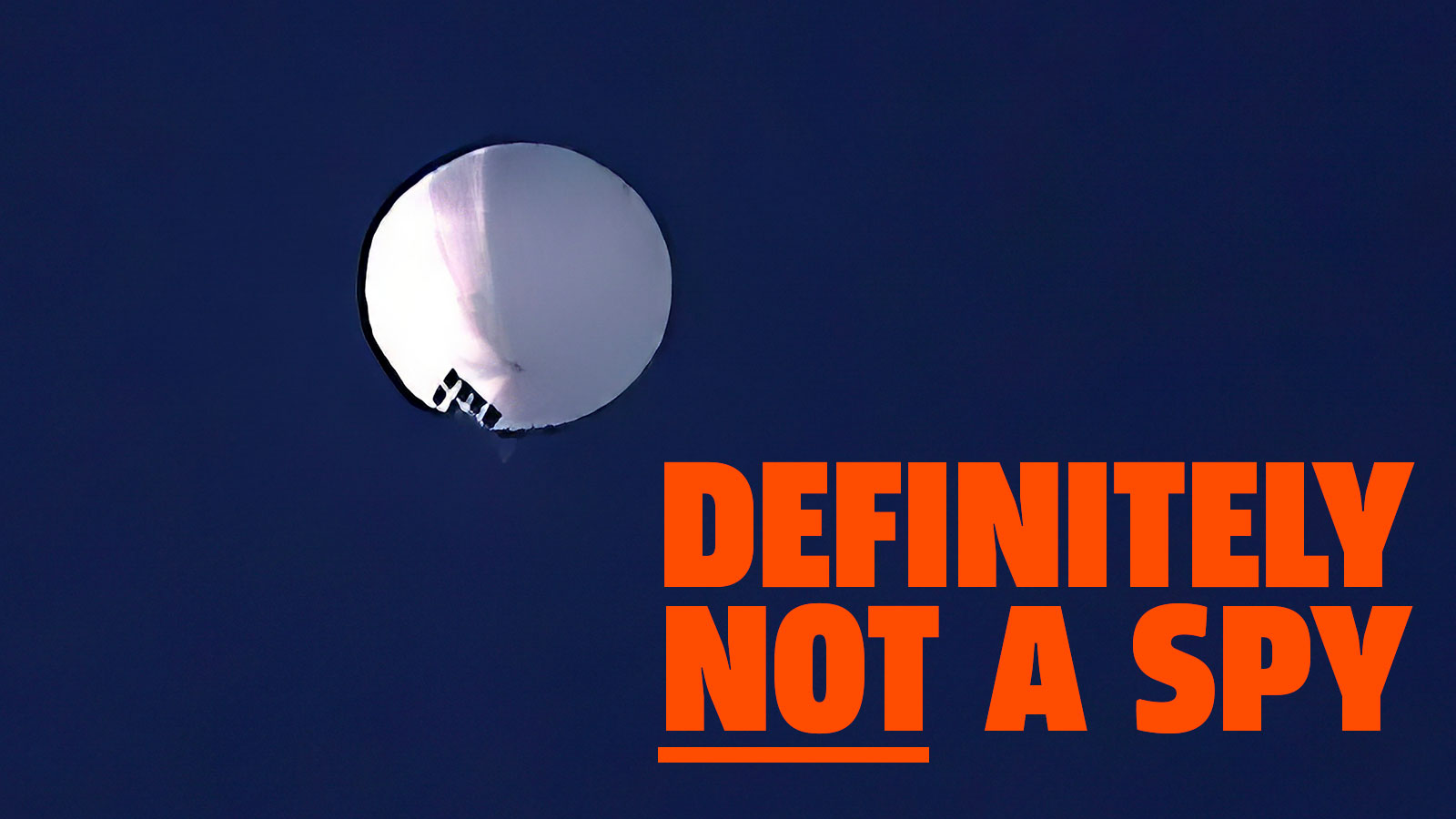Chinese Research Balloon Lost Over America Definitely Not Spying, Says China
A Chinese 'airship' spotted flying over U.S. airspace was just a civilian weather experiment and definitely wasn’t spying, says China.
Have you ever played with a helium balloon and let it float off into the sky? Did you wonder where it might land, or if it might cause an international incident? Well, that's what happened when a Chinese weather balloon drifted off course and entered U.S. airspace.
On Thursday, U.S. authorities spotted a weather balloon drifting into American airspace. According to the Associated Press, the balloon was spotted over a "few days" as it drifted above "sensitive sites" such as areas of Montana where one of the nation's three nuclear missile silo fields is located.
Pentagon officials told reporters that the U.S. had a "very high confidence" that the balloon was flying over such sites to collect information. But, despite the balloon flying close to some top secret spots, the Pentagon added that it decided not to shoot it down over concerns of hurting people on the ground.
Now, the AP reports that China has spoken out about the incident and tried to quell any concerns that it was spying on the U.S. According to the site:
"China's Foreign Ministry said Friday that a balloon the U.S. suspects of conducting surveillance was a civilian 'airship' used for research, mainly meteorological purposes.
"The statement said the airship has limited steering capability and 'deviated far from its planned course' because of winds. It said China regrets the unintended entry of the airship into U.S. airspace."
Chinese Foreign Ministry spokesperson Mao Ning told The AP that China had "no intention of violating the territory and airspace of any sovereign country." They added that the country was working to "understand" the situation, and hoped that "both sides can handle this together calmly and carefully."
Since first spotting the ballon, U.S. defense officials have assessed it and deemed it to have "limited" value when it came to providing intelligence. They said that anything it was able to collect would also have been available via satellite observations.
The AP adds that it is "not clear" what will happen to the balloon if it isn't brought down by the U.S., though U.S. Secretary of State Antony Blinken has postponed a weekend trip to China over it.
